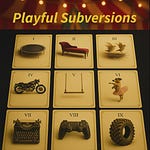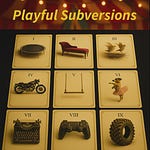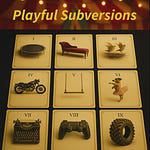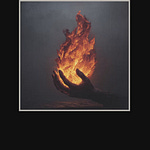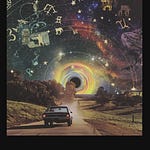In this episode of Playful Subversions, I speak with Nicholas De Carlo, an analytic social worker, educator, and co-director of the Emancipatory Sciences Lab at UCSF. Our conversation—humorous, reflective, and deeply humane—centers on birds, both literal and symbolic, as vehicles for tenderness, abolitionist imagination, and re-enchantment with the world.
Nicholas recounts a spontaneous initiation into urban bird rescue: discovering fledglings on New York sidewalks, encountering other “bird people” on subway platforms, and bringing injured birds to the Wild Bird Fund. Through these moments, they reflect on care, mortality, and the politics of attention—how noticing the fragile life around us alters our sense of responsibility and possibility. Our dialogue moves fluidly between the mundane and the metaphysical: from the absurd bureaucracy of wildlife intake forms to the spiritual charge of disrupting one’s day for an act of care.
The conversation expands into reflections on abolition geographies (after Ruth Wilson Gilmore), autistic relationality, and the carceral logics that confine both humans and non-human life. Birds become a metaphor for freedom, interdependence, and the paradox of the nest—as both safety and constraint. We also explore virtual birds, like those in the self-care app Finch, as digital companions that mirror our ambivalent relationships to technology, capitalism, and play.
By the end, this episode becomes a meditation on tenderness as resistance, care as subversion, and the radical potential of noticing—one baby bird, one human moment—at a time.



